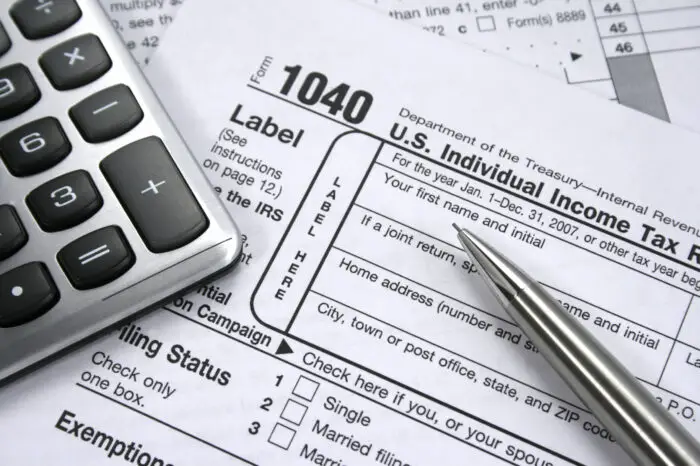What IQ Do You Need for JD? How to Become a Lawyer in the Cheapest Way Possible
Becoming an attorney and getting my JD designation is something that has kind of always fascinated me. I haven’t dived into the subject of law as much as I have something like Finance or SEO, however I always did very well in my law classes, and sometimes can’t help but think that I would’ve been a good lawyer. And while I still have a ways to go as far as my career is concerned, and while I may very well go to law school someday (depending on the price), for now I’ve just had a gentle fascination with the subject. And so, without further ado, in this blog post, I’ll walk you through what IQ you need to get a JD, what IQ you’ll need for each school and for each different LSAT score, and of what other types of fields you can get into with a law degree, stay tuned and be sure to subscribe to our blog for additional details and information.
Other IQ related blog posts similar to this one include:
IQ for CPA
IQ for MBA
IQ for CFP
IQ for Masters Degree in Finance
IQ for Engineering
IQ for Computer Science
IQ for Civil Engineering
IQ for becoming an Attorney
IQ for Becoming an Accountant
IQ for Becoming a Financial Advisor
And a host of other professional careers, read on or subscribe to our blog for additional details and information.
What IQ Do You Need for JD, And What is the Average IQ For High Level Attorneys?
| Related Posts |
|---|
So, in keeping this somewhat short here, in order to be a top attorney you’ll typically need to go to a top law school, which means getting something like a top 1-15% LSAT score and top 5-12th percentile in grades. Just getting into the top law school that you’ll need to be at in order to become a top level attorney puts you at something like the top 5% in IQ, which puts you at somewhere in the 130 to 145 IQ range, with something like the 90th percentile of work ethic to boot. In short, in order to become a high level attorney, you are probably going to need to be relatively argumentative, somewhat disagreeable, somewhat outgoing, it helps to be really competitive, and it helps to have a high IQ, especially on the verbal side, and so in short, you’ll need to be really really smart in order to become an attorney, especially at a high level.
Average IQ Scores by Law Schools and LSAT Scores, What IQ Do You Need for JD?
So generally, the LSAT scores curve is going to look something like this:
175 to 180 LSAT score (work ethic and other factors aside obviously, like studying for a ridiculous amount of time) – 135 to 145 IQ
170 to 175 LSAT – 130 iq
165 to 170 – 125 IQ
160 to 165 LSAT = 120 IQ
155 to 160 LSAT = 115 IQ
150 to 155 LSAT = 110 IQ
145 to 150 LSAT = 105 IQ (about average amount test takers.)
140 to 145 LSAT = 100 IQ (Average IQ of the general population, ie. probably don’t go to law school.)
The trend in law schools tends to follow suit, take the top IQ section in this chart and put them at the top 5 schools, the next level at the top 14 schools, the next at the top 20, then top 30, and so on and so forth, and that’s pretty much how law school rankings, LSAT scores, and thereby IQ and as a by product work ethic, is typically distributed.
Final Thoughts on What IQ Score You’ll Need to Get a JD, And Why a 120 IQ is Likely the Sweet Spot
And so, to get a JD generally speaking, you’ll probably want to be in the 115 to 120 range with a high work ethic to be a decent attorney. To be a really high level attorney, it really helps to have an IQ in the 130 to 145 range and to be healthy, extremely hard working, have good social skills, and to be argumentative and good at writing, and that my friends and readers, is the gist of what you’ll need in order to have a career in law. For more information, read on or subscribe to our blog for additional details and information.
Cheers!
*Inflation Hedging.com
Sources:
https://www.bankrate.com/banking/cds/cd-rates/
https://money.cnn.com/data/markets/
Disclaimer: The opinions and documentation contained within this article and on this blog are the sole property of inflationhedging.com and are not to be copyrighted or reproduced in any manner, else legal action within the rights of the United States legal code could be use to obtain recompense. All articles and blog posts are the sole opinions of the writers of the blog, and are not necessarily in line with what exactly will work for you, you should consult a CPA, Tax Professional, or Financial Professional to determine what exact financial needs are in line with your interests. Also, from time to time, certain links on this website will be used to generate affiliate commissions, in order to support the health and growth of our website, health and business.











[…] that I have drawn from the book Machiavelli The Prince and the reality of certain sales positions, jobs in finance, or in business in general, is absolutely amazing. In this blog post, I’ll walk through Niccolo […]
[…] attended Harvard Law School, where he graduated with honors. After law school, he joined the district attorney’s office in Manhattan. He later left the DA’s office to join […]